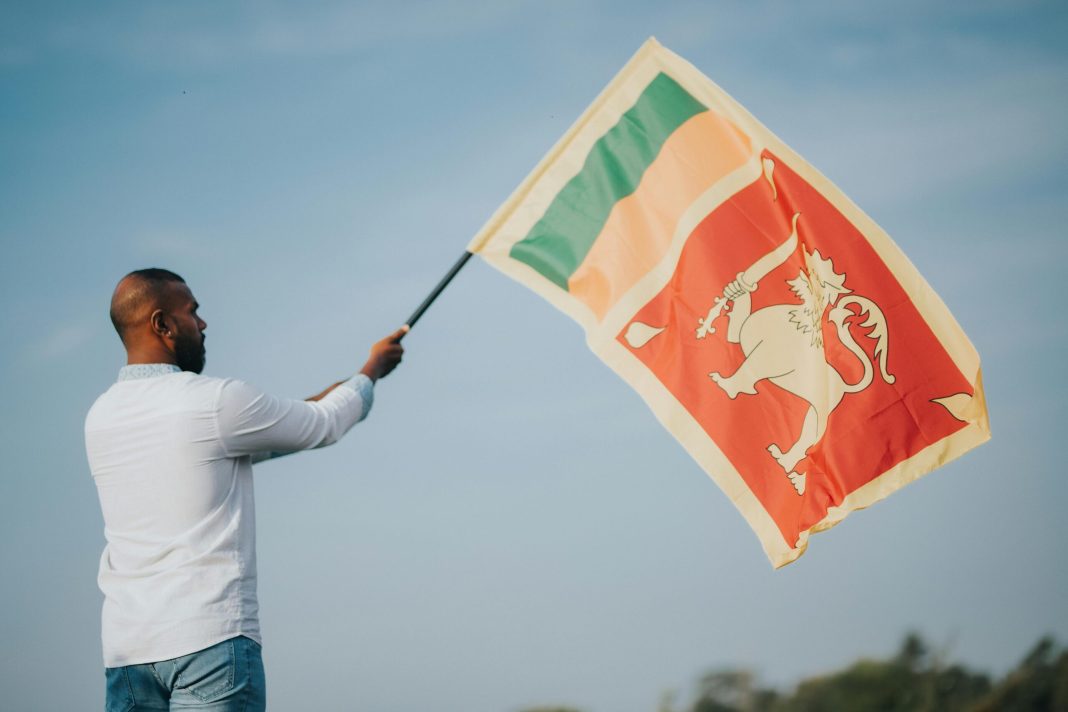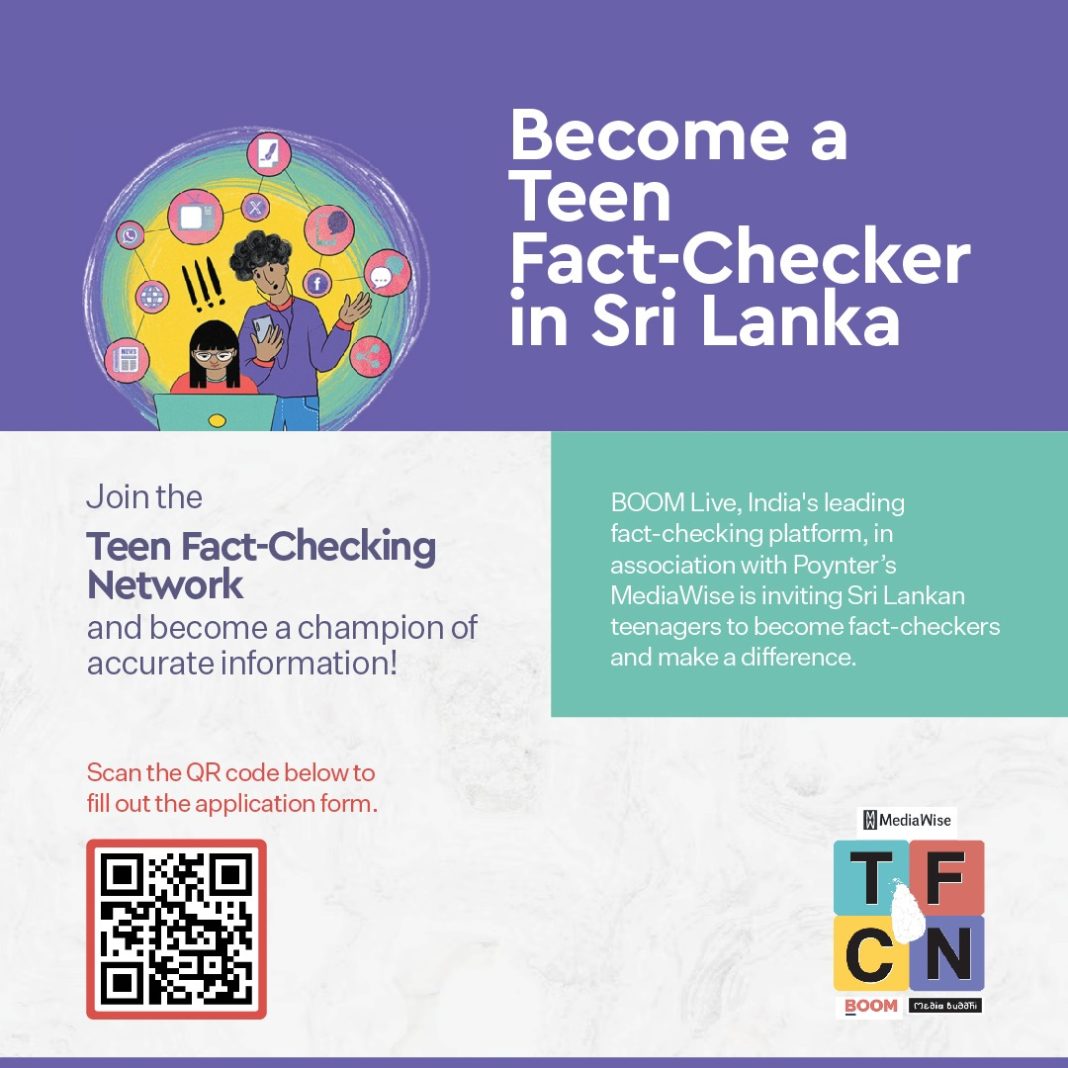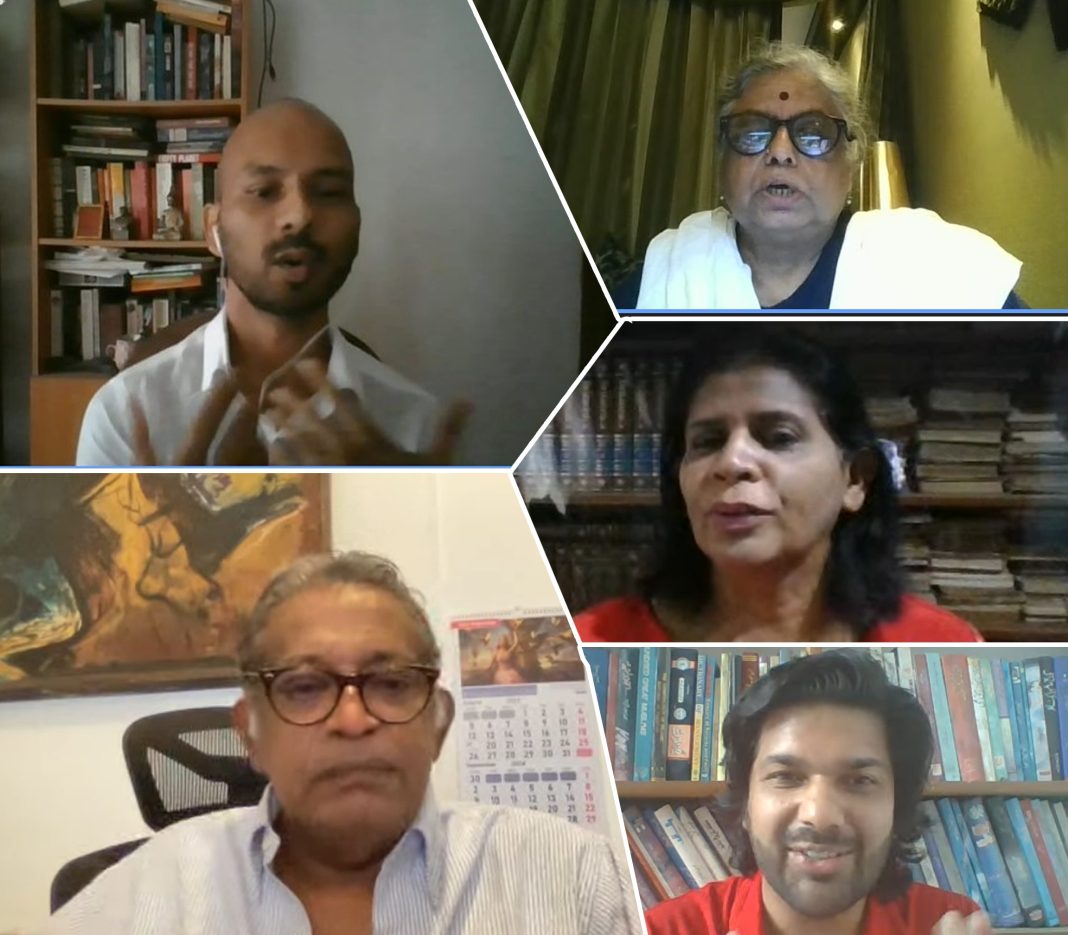As the island nation’s 16-million registered voters head to the polls this September 21, a webinar hosted by Asian Dispatch and Centre for Investigative Reporting dissects how the nail-biter election will unfold, and the role its South Asian neighbours and global partners like China will play.
Rukshana Rizwie, Edited by: Pallavi Pundir | 04 September 2024
If the economic crisis of 2022 sent shockwaves through Sri Lanka and altered its political trajectory, the upcoming presidential election – scheduled for September 21– promises to do more than just shift the course. Experts say it will chart an entirely new direction for the island nation.
As 16-million registered voters head to the polls, their choices will draw from the hard lessons learned from the events of 2022, ranging from the country’s bankruptcy to the lingering shadows of a decades-long armed ethnic conflict.
Sri Lankans will choose from 38 candidates vying for the presidency. Current President Ranil Wickremesinghe managed to stabilise the situation with loans and aid from the International Monetary Fund after taking charge of the country in 2022 when former president Gotabaya Rajapaksa fled the country after protesters took over his official residence – a moment quite similar to last month’s events in Bangladesh. However, his government continues to face high inflation and shortages of essential goods and medicines. The opposition calls it an “economic Armageddon” while Wickremesinghe asserts that this is the only way forward for Sri Lanka.
Now, the questions that loom large on the island nation’s psyche are: Will Sri Lanka slide further over the economic edge? Or is it capable of finding a progressive leader to steer it forward? In the larger scheme of things, what implications will these election results have on the world, and specifically South Asia?

Sri Lanka’s mass anti-government protests in 2022 ushered in a change in the country’s leadership. But not much has changed. Photo: AntanO/Wikimedia (Image Credit – Asian Dispatch.net)
On September 3, Asian Dispatch collaborated with Sri Lanka’s Center for Investigative Reporting (CIR) to host a webinar and seek answers to these compelling questions.
Titled ‘The Road Ahead: What Sri Lanka’s Presidential Elections Means for the World’, the webinar had an esteemed guest panel of Dr Paikiasothy Saravanamuttu, the Executive Director of Center for Policy Alternatives; Rathindra Kuruwita, the Deputy News Editor at The Island; Aditi Phadnis, Political Editor at Business Standard; and Kunwar Khuldune Shahid, Pakistan Correspondent at The Diplomat.
The conversation was moderated by Dilrukshi Handunnetti, Co-founder/Director of CIR.
Image – Dilrukshi Handunnetti moderates the September 3 webinar on Sri Lanka’s elections. The webinar was co-presented by Asian Dispatch and Centre for Investigative Reporting. (Image Credit – Asian Dispatch.net)
Here are some highlights from the conversation:
The Sri Lankan Perspective
Dr Saravanamuttu, of the Center for Policy Alternatives, offered a sobering assessment.
“This election comes in the wake of the near-total collapse, signifying not just an economic crisis, but a crisis of governance. It’s the first election since the 2022 protests that ousted the Rajapaksas from government—though not from Sri Lankan politics.”
Dr. Paikiasothy Saravanamuttu, centre, addresses the speakers and audiences on September 3 webinar (Image Credit – Asian Dispatch.net).
He emphasised that while the ballot is long, the real contest lies between three major contenders: The incumbent President Wickremesinghe, Sajith Premadasa and National People’s Power (NPP) leader Anura Kumara Dissanayake. Wickremesinghe is credited for stabilising the country but remains unpopular due to tax policies that disproportionately burden the middle and lower classes. The competition is fierce.
Internationally, Sri Lanka’s political landscape has significant ramifications. Early this year, India, with its complex history of engagement with Sri Lanka, met with leaders of the NPP to discuss bilateral initiatives and development.

The Election Commission of Sri Lanka has published tough guidelines for the 38 candidates – who are all men – who are competing for the role of Sri Lanka’s next president. Photo: Election Commission of Sri Lanka/Facebook (Image Credit – Asian Dispatch.net)
China remains deeply invested in the country too due to its financial backing of the Rajapaksa regime.
Meanwhile, the U.S. is cautiously monitoring developments in the strategically critical Indian Ocean region for its own interests.
India’s Perspective
Phadnis of India’s Business Standard newspaper highlights the growing concerns within Indian political circles about the upcoming Sri Lankan elections.
“We are entering a period of great challenge and great disconnect,” Phadnis notes, reflecting on the longstanding issues that continue to strain the relationship between the two countries. “Many of the challenges and cause of discontent in the relationship between India and Sri Lanka remain the same. I don’t see any political parties in Sri Lanka addressing this in any meaningful way.”
Aditi Phadnis, a senior political journalist from India, talks about the challenges that Sri Lankan elections outcomes can pose for India (Image Credit – Asian Dispatch.net).
One of the most contentious issues that Phadnis raised during the webinar is the 13th Amendment of the Sri Lankan Constitution, a key point of tension between India and Sri Lanka. The 13th Amendment, borne out of the Indo-Sri Lanka Accord of 1987, calls for the devolution of central powers to provincial councils, a move toward federalism which is intended to empower Sri Lanka’s provinces, particularly in the Tamil-majority northern and eastern regions.
Phadnis says that for India, the full implementation of this amendment is seen as crucial, not only for the empowerment of the Tamil minority in Sri Lanka but also as a means to secure itself from any spillover of conflict that could destabilise the region.
However, she notes that mainstream Sri Lankan leaders have been hesitant to fully implement the 13th Amendment, especially concerning land and police powers, which are seen as critical components of true devolution. This hesitancy has perpetuated a sense of disenfranchisement among the Tamil community here, creating further complications in the already complex relationship between the two nations.
Phadnis also points out the fractures within the Tamil political landscape, noting the split between Tamil parties such as the Tamil National Alliance (TNA) and the Ilankai Tamil Arasu Kachchi (ITAK) over their choice of presidential candidate. This division has not only weakened the Tamil political front but has also complicated the broader issue of devolution of power. The ideological underpinnings of the Tamil Eelam movement, once driven by India’s Dravidian movement, have undergone significant fractures, leaving the Tamil cause fragmented.
Reflecting on India’s stance on the Tamil representation in the election, Phadnis says: “There will be no effort by India to prop up any candidate that tempers the demand for a separate homeland. That is all in the past, and India will not make the same mistake again.” She references the Indian Peace Keeping Force (IPKF), which operated in Sri Lanka from 1987 to 1990, noting that even today, it struggles to be recognised as an out-of-area peacekeeping force within India.
Phadnis further noted that no one in India would want to see a repeat of the Easter bombings or the Aragalaya (as the 2022 protests is popularly called in Sri Lanka), underscoring the deep concerns over Sri Lanka’s stability and the broader implications for regional security.
Pakistan’s Perspective
Shahid from The Diplomat offered a nuanced perspective on his country’s relationship with its South Asian neighbors, particularly Sri Lanka.
“Pakistan finds itself in a paradoxical position in the region — it has little to offer its South Asian neighbors in many respects. However, with Sri Lanka, the relationship is different,” Shahid explains. “Pakistan seeks a more balanced diplomatic approach with Sri Lanka, especially vis a vis India. Together, Sri Lanka and Pakistan share a long history of security and military cooperation.”
Kunwar Khuldune Shahid talks about Pakistan’s diplomatic relations with Sri Lanka and the opportunities therein(Image Credit – Asian Dispatch.net).
Despite Pakistan’s limited trade agreements — limited to only four countries so far — Sri Lanka stands out an exceptional and positive trade partner. However, Shahid points out that this trade, while positive, pales in comparison to Sri Lanka’s trade with India, which is 10 times more in scale. Pakistan aspires to expand this aspect, seeking collaboration not just in economic and defense sectors but also on issues related to minorities.
Shahid acknowledges that the relationship between Pakistan and Sri Lanka has been somewhat lukewarm, largely because both countries have historically maintained non-aligned stances on key regional issues. Sri Lanka, for example, has consistently maintained neutrality on sensitive issues like Kashmir, which has helped sustain diplomatic balance with India.
“This neutrality, this diplomatic balance, has been beneficial [for Sri Lanka],” Shahid notes.
Pakistan has, in turn, supported Sri Lanka on the international stage, notably by voting against the 2021 UNHRC resolution that called for international investigations into the country’s war crimes, at the United Nations Human Rights Council in Geneva. This solidarity has strengthened the security collaboration between the two countries, with military drills, intelligence sharing, and arms supplies reaching unprecedented levels. “It is in the realm of security that Pakistan has something tangible to offer Sri Lanka, and Sri Lanka values this assistance,” Shahid explains.
The Elephant in the Room: China
Kuruwita of The Island sheds light on the big source of global curiosity, which is China’s engagement in Sri Lanka.
“There are many questions surrounding what China has been doing in Sri Lanka for the last 2 years, and the answer – quite simply – is ‘Almost nothing,’” Kuruwita states. “Over the last two years, China has been virtually silent, with minimal economic activity. The reasons for this are multifaceted, but one stands out: China’s engagement in Sri Lanka has historically varied depending on which political party is in power.”
Kuruwita elaborates on the long-standing relationship between Sri Lanka and China, dating back to 1950 when Sri Lanka became one of the first countries to recognise the People’s Republic of China. “This relationship has seen fluctuations based on the ruling party in Sri Lanka,” he explains. “When the Sri Lanka Freedom Party (SLFP) is in power, China typically provides more loans, aid, and political support as compared to when the United National Party (UNP) governs the country.”
Rathindra Kuruwita of Sri Lanka’s The Island newspaper addresses the elephant in the room: China(Image Credit – Asian Dispatch.net)
According to Kuruwita, the current administration under President Wickremesinghe is not favoured by China, which explains the noticeable lack of Chinese activity in the country. “China clearly doesn’t like Ranil’s administration, and until there’s a change in leadership, we shouldn’t expect much from China in terms of engagement,” he notes.
Looking ahead, Kuruwita says the outcome of September 21 election could significantly impact China’s involvement in Sri Lanka.
“If JVP comes to power – despite their criticism of foreign engagement – China might find a soft spot for them. On the other hand, Sajith Premadasa, often seen as UNP 2.0, would likely continue the current trend of limited Chinese activity. It’s clear under whose leadership we can expect a shift in Chinese engagement after September 21.”
In conclusion, all four panelists agreed that the aftermath of the September 21 election will have profound and long-lasting implications for the broader region. As both Delhi and Beijing adopt a cautious wait-and-watch approach, the stakes are quite high in what is clearly a nail-biting electoral contest.
This was originally published on Asian Dispatch.net on 04 September 2024.




